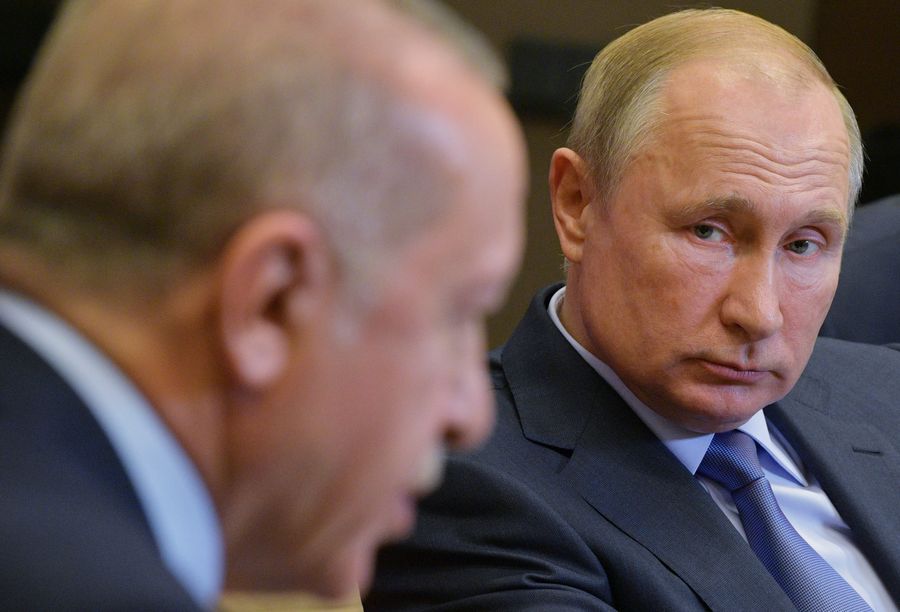
Members of Syrian rebel groups allied with Turkey are seen in the Turkish border town of Ceylanpinar, on their way to northern Syrian town of Ras al-Ayn, on Oct. 23, 2019. (Xinhua)
"Trump's celebration of the Putin-Erdogan deal represents his total surrender of American leadership and the treacherous betrayal of our Syrian Kurdish allies," said Democratic Senator Chris Van Hollen.
WASHINGTON, Oct. 24 (Xinhua) -- U.S. President Donald Trump said on Wednesday that he ordered U.S. sanctions on Turkey over its offensive in northern Syria to be lifted as Turkey had informed Washington of a "permanent" ceasefire in Syria.
Expressing confidence in Turkey's commitment, Trump said he has instructed the Secretary of the Treasury to lift all sanctions imposed on Oct. 14th, adding that Washington reserves the right to re-impose sanctions against Ankara if it fails to honor its obligations.
Earlier this month, the Trump administration imposed a series of sanctions on Turkey over its military operations in Syria, including sanctions against several Turkish government departments and their heads, extra tariffs on steel imports from the country, and the suspension of negotiation on U.S.-Turkey trade deal.
Trump's move came just one day after Russia and Turkey's joint agreement on establishing a safe zone in northern Syria on the condition that Kurdish forces withdraw.
According to the agreement, the Kurdish forces have to withdraw within 150 hours to the depth of 30 km from the Turkish-Syrian border on the Syrian side. Russian and Turkish forces will then start joint patrols in the area of Operation Peace Spring in northern Syria to a depth of 10 km, excluding Qamishli city.
Trump indicated that he welcomed the deal between Russia and Turkey. "Other countries have stepped forward, they want to help, and we think that's great," he said.
But many in the U.S. foreign policy community cannot share Trump's optimism regarding the Russia-Turkey deal. The New York Times argued that the deal strengthens the rapid expansion of Russian influence in Syria at the expense of the United States and its former Kurdish allies.

Russian President Vladimir Putin (R) listens to Turkish President Recep Tayyip Erdogan during their meeting in Sochi, Russia, on Oct. 22, 2019. (Sputnik via Xinhua)
During a congressional hearing Tuesday, James Jeffrey, U.S. special envoy for Syria said that he did not believe the deal serves U.S. national interest.
Democratic Senator Chris Van Hollen also expressed his frustration.
"Trump's celebration of the Putin-Erdogan deal represents his total surrender of American leadership and the treacherous betrayal of our Syrian Kurdish allies," he tweeted.
Despite Trump's consistent call for bringing U.S. troops back home, the United States would still keep a limited military presence in parts of Syria.
A senior administration official later in the day confirmed to the press in a telephone briefing that "a residual force" would station in the areas where oil fields locate, as well as the al-Tanf base in southern Syria.
The official declined to say the number of the troops due to security reasons.
Citing a U.S. official, the Washington Post wrote on Monday that roughly 200 troops would remain in the oil-producing area of Syria, and their task is to keep oil fields out of the hands of the Islamic State (IS) and to prevent them from being claimed by the Syrian government.
Brett McGurk, the former presidential envoy for the global coalition to defeat the IS, questioned the feasibility of that plan, saying it would be extremely difficult and risky to sustain a small residual U.S. force without land supply. ■



